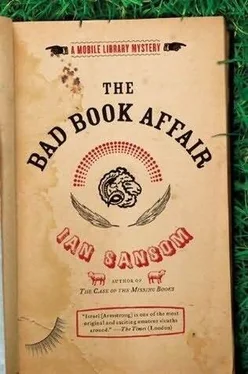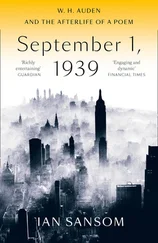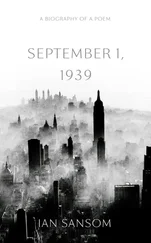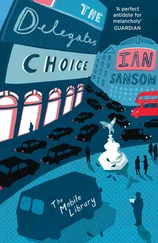“The sound of an English voice,” Pearce would say when Israel read, and “Controversy,” he would say when Israel said “con-troversy.” “You’re not American, are you?” And “Canine,” he would say. “People do insist on calling it ‘cay-nine.’” It reminded Israel of being a child, when his father had told him stories-fairy tales and Irish legends, the story of Finn McCool, which is why he’d arrived in Ireland in the first place, he was sure, because of the fantasy of Irishness, and now he was living its reality. Pearce Pyper’s was an oasis.
Sometimes when Israel was reading, Pearce would fall into a deep sleep and Israel would let the housekeeper know, and he’d creep out of the house and walk down the lane back to the Devines’ with a curious sense of peace and terrible sadness, the very feeling he’d associated with reading as a child, a sense of great possibilities and endless disappointments. Pearce had tried to insist on paying Israel for his time and trouble, but Israel had steadfastly refused. Reading out loud to Pearce was not a job; it was a joy. And then Pearce had hit upon the idea of paying him in kind.
“What sort of a palate do you have?” he’d asked Israel one Sunday afternoon, after they’d drunk their sherry and eaten their slice of cake.
“Erm.”
“I’ve a Spanish palate myself, I’m afraid.”
“Right,” said Israel.
“I find the Italian reds and French very high in tannins.”
“Ah. Yes. Uh-huh.”
“So I have my supplier in London-Moreno, do you know them?”
“Erm. No.”
“Excellent. Been with them for years. I find you have to spend so much to get a good drinking claret these days.”
“Right.”
“Anyway. I have them send me mostly New World and Spanish. Which I hope you’ll be able to enjoy.”
“Sorry?”
“I doubt you’ll need more than a case a month, will you?”
“A case of wine?”
“I’ve taken the liberty of arranging it to be delivered to you at the Devines’. I do hope it’s convenient.”
“A case of wine?”
“Riojas, mostly. But some New World. As a small token of my-”
“Oh, no, Pearce, I couldn’t possibly…”
“You could, definitely,” said Pearce. “And you shall. No arguments, thank you!”
“No. I couldn’t, really.”
“Next chapter, please,” said Pearce, with a flourish of his arm from the chaise longue. “Where were we?”
“Charles is about to perform the operation on the club-footed man.”
“Ah!” said Pearce. “Quel dommage! Read on! Read on!”
They were special times together.
But things had changed.
Pearce wasn’t in the drawing room today, and there was no wine and no craic. He was in the library, which was decorated in the Edwardian style, by Edwardians, with a stenciled frieze running around the tops of the shelves, and large, threadbare Persian rugs on the dark stained floorboards, heavy furniture highly polished, and windows draped with thick red velvet curtains. He lay stretched out on an old leather chaise longue by his writing desk, eyes closed, his hands folded on his lap, a black shawl draped around his shoulders. Even from a distance you could see that he wasn’t well, that something had gone wrong: his skin looked tight and luminous and pale, like a veil drawn across his face. He looked like a very sick and very weak Whistler’s mother; he had that peculiar childlike, otherworldly grace about him that only the very old acquire, as though life were just one long, wasting, harrowing journey back toward home. His eyes had sunk far into his face, but his hair had been cut short and neat, as though ready for an important occasion: a birthday, perhaps, or an anniversary.
“He’s wandering,” whispered Joan as she ushered Israel into the library. “You have to be patient. And don’t let him give you anything,” she warned. “He’s giving people things at the moment.”
“I see.”
“If he gives you anything, just leave it behind when you go.”
“Has he seen a doctor?”
“Doctor’s been.”
“And?”
“Exhaustion. Flu. On top of everything else,” she said disapprovingly, adding, “He’s going to go into a home.”
“No?” said Israel. “You’re not serious? You can’t make him leave here and-”
“Yes,” said Joan. “We can.”
“But…What about his family?”
“There is no family.”
“But to take Pearce from here would be…He’ll…And what if he gets better?”
“He’s not going to be getting any better now.”
“Why? What do you mean? Isn’t he just-”
“This is it now,” said Joan forcefully.
“No. He’s fine,” protested Israel. “He’s just-”
“He has vascular dementia,” said Joan.
“Oh. Well.” Israel didn’t know what to say. “I knew he wasn’t…What is that?”
“It’s like Alzheimer’s.”
“Is it curable?”
“No.”
Israel and Joan stood facing each other at the door leading into the library.
“Anyway, you’ll see for yourself,” said Joan.
“Well, what about…” Israel was struggling to take it all in. “Is there no one else who could help look after him here?”
“Are you volunteering?”
“Erm.” Israel looked down at the floor. “Well. I’d like to be able to-”
“He’s going to need specialist care.”
“Have you told him?”
Joan nodded.
“And what did he say?”
“What do you think? Go on in.” She nudged Israel forward.
Israel walked quietly across the squeaky floor into the library. The room was full with the smell of beeswax, old books, and sickness. He could see Pearce’s chest steadily rising and falling. Before he’d reached him, and without opening his eyes, Pearce spoke.
“How nice…” he began. And then he began coughing-low, dry coughs. “Nice of you to come,” he said. “I do apologize…for my…”
Pearce’s voice was still there, but it was thin, as though he was speaking from another room. It was the voice of man at the edge of somewhere. He drooled slightly as he spoke.
“Will you…” There were long, agonizing pauses between his words. “Have a drink?”
“No, thanks,” said Israel. “Pearce, how are you?”
“Fine. The Russian novel?”
“Sorry?”
“The Brothers Chestycough?”
“Ah. Very good,” said Israel.
“Just a…cold,” said Pearce.
“That’s because you were out in the damp on Friday, playing your fiddle.”
“Playing the fiddle?”
“On Friday? Don’t you remember?”
“Heifetz I met once.”
“Yes I know. But-”
“Where are we going?”
“We’re not going anywhere, Pearce. I’ve come to visit you.”
Israel glanced inquiringly across at Joan, who had settled herself on a battered chesterfield by the door; she cast her eyes up to the ceiling.
“Would you like me to take your coat?” asked Pearce.
“No thanks, I’m fine, really, thank you.”
“If you are, so.” Pearce raised a withered hand and beckoned him closer. “You need to…Sit close.”
Israel pulled a high-backed chair close.
“Closer,” said Pearce. Israel glanced again at Joan, who nodded. He came and knelt by the chaise longue.
Pearce was wearing a linen shirt buttoned all the way up to the neck, and a pair of black trousers, and canvas shoes with thick soles the color of a North Antrim beach. Up close, the skin on his face looked thin and papery; his beard was barely there.
“I’m sorry…” he said. “Hard of hearing.”
Israel tried to think of something to say.
“I saw a hare on the way here, Pearce. I thought you’d be interested.”
“A hare?”
“Like a rabbit?”
Читать дальше
Конец ознакомительного отрывка
Купить книгу












